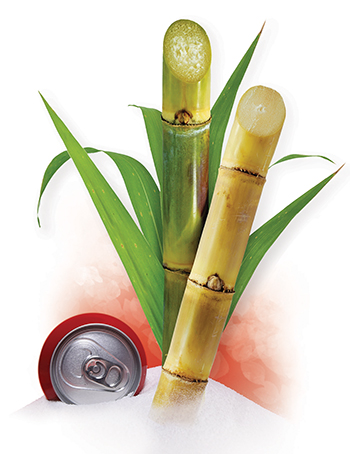First Drop: What’s the Price of Sugar?
So, again we’ve found a situation where the big brands plead ignorance to something awful happening in the world. Last issue, it was a hate-mongering UFC fighter working for Monster. This issue, it’s something much worse: big soda companies’ use of sugar sourced from a region of India that is rife with worker abuses.
According to a recent story in the New York Times, big soda companies Coca-Cola Co. and PepsiCo, among others, source sugar from the Maharashtra state in India – one whose mills rely on child labor, worker indebtedness and a set of labor requirements so harsh that many women working to cut sugarcane are undergoing unnecessary mastectomies to avoid missing work.
In many cases cited by the Times, working in concert with journalism organization the Fuller Project, women were forced into marriage as soon as they began menstruating, both in order to reduce the number of children their parents needed to feed, and to create a paired labor arrangement. Husbands and wives working the fields together are more efficient and more likely to be hired, according to the Times, with the husbands hacking down sugarcane and their wives ripping razor-sharp leaves off the canes, then stacking, bundling, and carrying them to waiting trucks. The workers can’t leave – they’ve already been advanced on their pay ahead of their arrival, so any missed days keep them mired in debt. Hence menstruation or pregnancy can lead to them owing even more to their employers, furthering the cycle of debt.
Both Coke and Pepsi – which have pledged to remove forced labor from their supply chains – acknowledge that some of their sugar comes from the region, but they blame the contractors who purchase it for them. Similarly, the mill owners say they don’t employ child labor or forced labor – they blame the contractors they use to pull together and who manage their workforce. The local government has investigated but little change has taken place.
I’m obviously no expert on international labor conditions and I understand that the region is likely leaning into its biggest potential financial resource when it looks the other way on the plight of its workers. But it’s clearthat the brands that benefit from these arrangements have a duty to look at more than maintaining their margins in their dealings with their suppliers in Maharashtra State.
As we know with innovation, it’s hard for big brands to move quickly; global supply chains are hard to reset. But it’s still hard to excuse Coke, which, according to the Times, knew about labor abuses in Maharashtra as long ago as 2019, when auditors hired by the company offered documentation about child labor and forced labor. The Pepsi team said it wasn’t aware of what was happening. Mondelez, which also buys from that region, said it would investigate. Maybe Coke could share its audit.
Meanwhile, both Coke and PepsiCo are continuing to grow their Maharashtra operations. We hope that their financial commitment to the region is buttressed by a hard, careful look at the labor practices there – right now it’s hard to give these companies the benefit of the doubt.
In the meantime, there are a great many entrepreneurial brands that are actually growing because of the attention they’re paying to supply chain issues, both via Fair Trade certification and a core commitment to clean, abuse-free sourcing. Brands like Sambazon, Guayaki, Just Ice Tea, and many more aren’t just making money while sourcing abroad, they’re activists – and they continue to grow.
The Times report is double jeopardy for Big Soda because it puts both the abuse of workers, and the use of the sugar that is the core ingredient of their products front and center. We’re in a generational economic shift, to the conscious consumers of Generation Z, while health concerns around excessive sugar consumption continue to accelerate.
It’s an example not of the moral quality of the issue, but of the speed at which opinions harden against the bottom line, that I’m going to bring up the internet backlash against Bud Light last year and its financial impact on that brand. Think about it this way: fortunes can be lost in weeks. Even if you can’t understand it as a moral imperative, you can certainly think of it as a financial one.
Coke and Pepsi might not be good at innovating quickly, but they’d better learn to clean up their mess in Maharashtra with all due speed.


Receive your free magazine!
Join thousands of other food and beverage professionals who utilize BevNET Magazine to stay up-to-date on current trends and news within the food and beverage world.
Receive your free copy of the magazine 6x per year in digital or print and utilize insights on consumer behavior, brand growth, category volume, and trend forecasting.
Subscribe